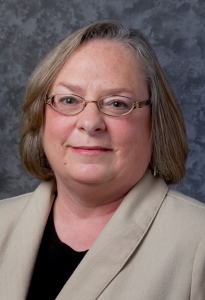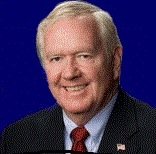
Last week was an eventful week in the Kansas Legislature. We spent all day Monday, Tuesday and Wednesday on the House floor debating and passing almost 30 pieces of legislation. Thursday and Friday were reserved for conference committee meetings where appointed members of the House and of the Senate met to work bills that had been passed by both chambers.
I very much enjoyed having Regan and Lola serve as legislative pages. They have become very experienced, having served last year as well. They both did a great job running errands in the Capitol and were quite attentive during a very long floor debate.
It remains an incredible honor to represent our community in the Kansas House of Representatives. While the Legislature is in session, I do my best to stay in touch and keep you informed by email, and I spend countless hours every week helping my constituents solve problems. If I can be of service to you or anyone you know call my office at 785-296-7371 or email me at [email protected].
Governor signs block grant bill
Gov. Brownback signed a bill last week that eliminates the school finance formula and allocates a block grant to school districts for the 2016 and 2017 school year. Under the new finance plan USD 500 is looking at $2.1 million dollars less in revenue in this school year that ends July 1, with greater impact in the next 2 years as the district’s needs grow. Our schools are already underfunded, and this bill exacerbates the problem by removing necessary weightings. When the bill was debated in the House, I voted ‘no’ because Kansas students deserve a quality education.
The legislature must now decide on a new school finance formula. The Senate Education Committee held hearings this week to discuss a new formula that would begin in 2018 with a base of $3,820 per pupil, $32 less than the current base state aid per pupil. The formula then includes supplemental aids based on poverty, pensions, equalization, enrollment, and success. The success portion would require districts to keep track of where students are two years after graduation. If passed, the formula would be tested in six school districts during the 2015-2016 school year. There is still a lot unknown about this bill, and with just a week left of regular session, there is not enough time to thoroughly vet a new school finance formula.
Budget
The Senate passed a budget bill Wednesday that will now come to the House to be debated. This two-year budget includes the following:
• Allocates $3 million to an efficiency study for state government by outside consultants yet to be determined.
• Cuts to Regents institutions including the University of Kansas ($9.4 million) and Kansas State University ($7.2 million).
• Changes the Comprehensive Grants formula to take away from scholarship money available to students of public universities.
• It does not include additional funding for the KU Medical Center in Wichita.
The budget, as proposed, cannot be financed by the state because of the revenue shortfall caused by the governor’s failed economic experiment. This budget will not balance, and because the state cannot deficit spend the only way the budget can be sustained is through new taxes.
Political patronage
One of the pieces of legislation that passed the House last week was HB 2391, which changes protections for state employees from classified to at-will. I voted no. Changing their classified status risks reverting state employment practices to a political patronage system rather than a merit-based system. The state deserves the best possible employees, regardless of their political affiliation or beliefs. The bill will now be referred to the Senate for further debate.
Eliminating conceal carry permits
One of the more controversial bills passed last week would remove Kansas’ permit requirement for individuals carrying a concealed firearm. The state’s permit process includes training and an extensive application and background check. The requirements ensure that certain core public safety standards are preserved when people are carrying hidden, loaded guns in public places. As a proponent of the Second Amendment, I am in favor of common sense gun laws, but allowing anyone to carry a gun without adequate training or a background check threatens the safety of our communities. The bill will now go the governor for his signature.
Reducing unemployment insurance
The House also passed SB 154, a bill that reduces a business’ contribution to the unemployment fund by limiting the maximum unemployment insurance benefit available to a Kansas worker to $474 a week. I voted no. Kansas has a moral obligation to support its citizens when they fall on hard times, and this bill abandons that obligation by prioritizing business’ profits over the needs of Kansas families. As a result unemployed workers will receive less and the Employment Security Trust Fund will be depleted by more than $165 million over the next year. Such a reduction in the fund exposes Kansas to financial distress in the event of an economic crisis.
KPERS bonding
The House voted last week to bond $1.5 billion of the Kansas Public Employee Retirement System (KPERS) indebtedness. The bill is part of the governor’s plan to fill the budget deficit, but is only a one-time revenue source. I voted no because borrowing and creating new debt to cover old debt is not fiscally responsible and does not resolve the state’s systemic revenue shortfall. Kansas will inevitably have to invest more money to meet its obligations to future retirees. Additionally, lowering the actuarial liability threatens the solvency of the system. It is time that Kansas makes common sense fiscal policies a priority.

